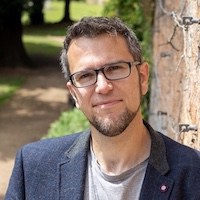Could a mindset of slow productivity and harmony over balance be a healthier way to think in 2025?
Throughout my career, I’ve been told that I work too slowly, or that I’m not doing enough. I’ve also been warned against using the phrase “slow and steady” when referring to the way I approach the work I do. A slow approach is seen as a negative quality. Nobody wants “slow”. People need results, and they need them fast.
But we simply can’t have it all without causing friction or stress somewhere. The largest cogs turn the slowest, and perhaps we spend a lot of our time and energy spinning little ones. The big ideas – the ones that are often the most important – demand slowness.
I’ve long advocated for taking a deliberately long-term approach in our work with clients to improve accessibility and sustainability efforts. Building a more inclusive and sustainable world is about maximising outcomes through improving quality and creating equity rather than one-off projects that focus on an appearance of “busy work”, conformance to standards and guidelines, or even compliance with law. It’s about working smarter – doing better work, not more work.
This way of thinking is often perceived as being too slow or more expensive. However, time and effort put into learning and truly understanding your craft is repaid many times over. This is why I believe that creating partnerships to develop skills, improve quality and build trust over time is more effective and sustainable. Yet I’ve often felt that this approach is simply not acceptable to people.
Thankfully, I’m starting to feel far more comfortable in my own “slow” skin. I’ve recently read Slow Productivity by Cal Newport, a book that presents a philosophy for work that sets foundations for taking meaningful action at a sustainable pace. It was back in September at Goodfest in Cornwall that I was reminded to give myself permission to be myself and take care of myself.

Goodfest is an annual gathering of passionate folk for time to connect, collect our thoughts, and inspire action. I was excited at this opportunity to think and connect, but also guilty at taking time away from my busy family, my busy business, and the bits of work I had on my mind. It was on the first night there that reading a few lines in Slow Productivity caused me to give myself permission to embrace the two days of the festival to just listen and be myself:
I came to understand that those who suffer for others do more damage to humanity than those who enjoy themselves. Pleasure is a way of being at one with yourself and others.
You can read more about this and more of my thoughts and takeaways from Goodfest on my personal blog.
Since then, I’ve had more courage to be who I need to be and to seek out ways to establish better harmony in my life.
We often talk of work-life balance. I tend to think about my approach to both work and life as being about creating harmony rather than trying to achieve balance. If we are balancing, it implies that what we do means a trade-off between two things – it’s binary; one or the other; black or white; opposing forces. Life is more complex than that – it’s far messier, with many interconnected things. Perhaps we need to think differently so that we’re creating the harmonious blend that’s unique to us as individuals.
As we headed towards the end of 2024, I was looking forward to hitting pause, reflecting on achievements, seeing how far I’ve come, and regaining perspective. But we don’t need to wait until a particular time of year to do these things. Maybe we should embrace the idea of slow productivity, be more deliberate, and work to create better harmony in our lives.
